New Delhi: With the number of coronavirus cases in India crossing the four-digit mark, news channels Sunday discussed the latest updates on the virus. India Today anchor Rajdeep Sardesai spoke to Nobel laureate Abhijit Banerjee about the migrant crisis that has been weighing on everyone’s mind since images of thousands of workers setting off to their villages on foot started doing the rounds, while BBC News graphically broke down what public social distancing actually entailed.
However, ‘news’ was not the only thing channels focused on. On Saturday, Aaj Tak hosts Anjana Om Kashyap and Shweta Singh played an actual game of antakshari on air — “Shuru karo antakshari, le kar Aaj Tak ka naam”.
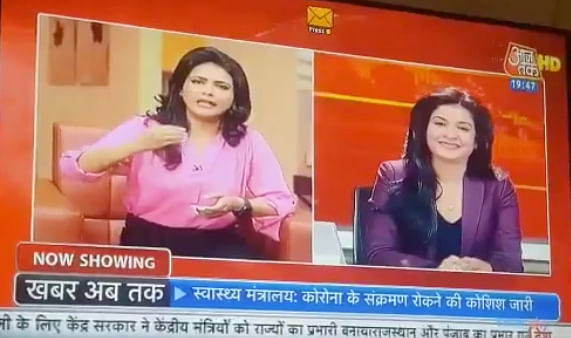
Staying true to social distancing, NDTV 24×7’s ‘We The People’ moved away from its usual live-audience format, with anchor Sarah Jacob speaking to several Covid-19 survivors on the phone.
Jacob said that although India had crossed the 1,000 case mark, it was important to remember that for every death, there were many who recovered. She reminded viewers that the mortality rate for Covid-19 was actually less than 1 per cent.
She lauded a survivor, who wished to remain anonymous, for speaking out about the disease to spread awareness, especially after Prime Minister Narendra Modi said that the survivors must make their stories go “viral” to assuage people’s fear. Perhaps, not the best choice of words given the circumstances.
She probed him on why he was choosing to keep his identity anonymous. Feeling the heat, he blurted his name out, to which she responded saying that she didn’t mean for him to reveal his identity on national television but was curious to know whether he had received backlash for friends, family or neighbours after coming out of recovery.
The survivor said it was only natural for people to believe rumors, and be scared at such a time, but it was with God’s grace, and doctors’ commitment that he had survived.
On India Today, Sardesai asked 2019 Nobel laureate, Abhijit Banerjee in Economics if he was surprised to see the desperation of people trying to migrate home across the country, to which Banerjee responded with a firm no.
“The economic pressures are obvious,” said Banerjee, pointing out that while these migrant labourers might have some land, rice grains or resources back in their villages, in cities with closed down construction sites, they had nowhere to go. Many of them sleep under trucks, Banerjee explained, but when trucks were stowed away in the lockdown, where are these people to sleep, he questioned.
He also pointed out that as the police had gone a “little bit out of control”, people had panicked further. He notes that clear ground instructions along with an “extremely respectful” police” is needed, along with a clear initiative by the government to provide safe shelter.
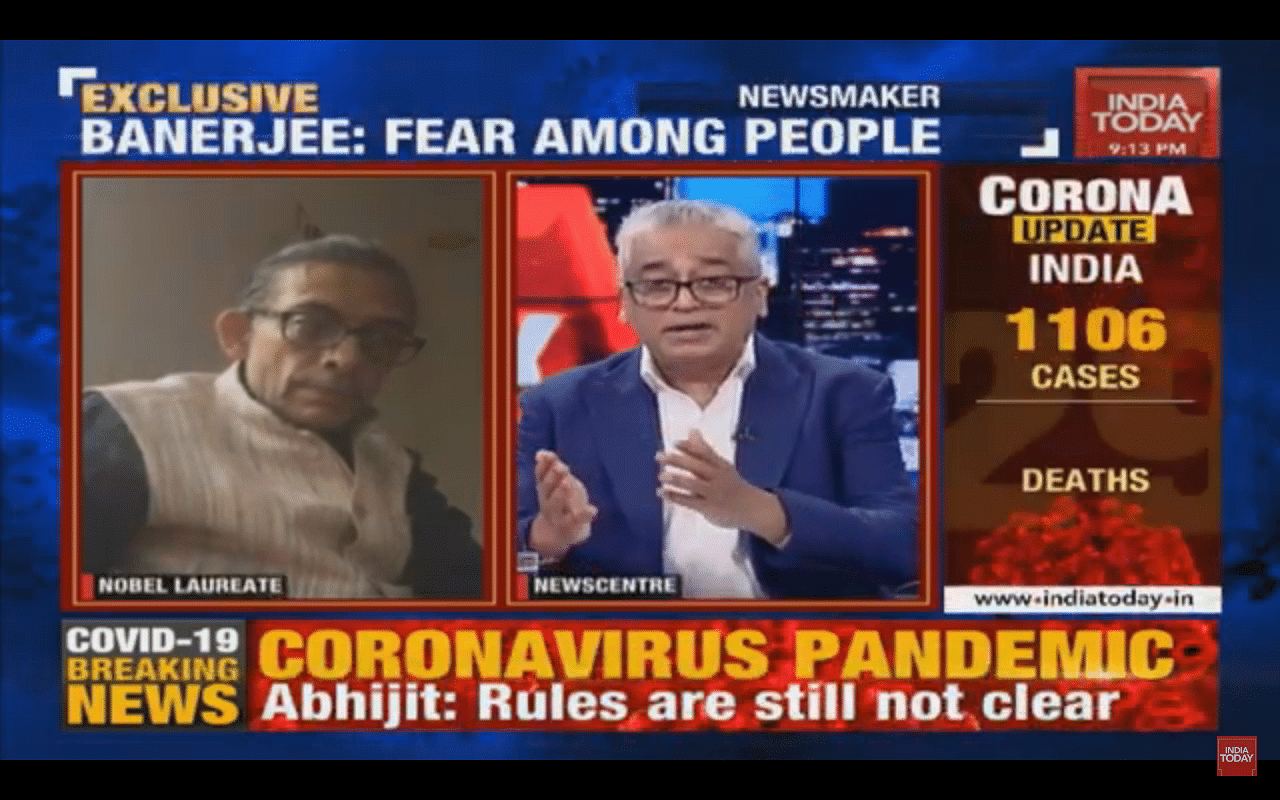
ABP News, on the other hand, asked, “Kya sabka ghar mein rehna, atyachaar hain?” (Does everyone find staying at home torture?). Anchor Rubika Liyaquat discussed Prime Minister Narendra Modi’s address on ‘Mann ki Baat’, and said, “Modi ne haath jode, maafi maangi, lekin India kab maanega?” (Modi folded his hands and asked for forgiveness, but when will India listen?). Liyaquat said hunger may be a major crisis, but if the government was promising to take care of it, why wouldn’t people take the coronavirus-related advisories seriously?
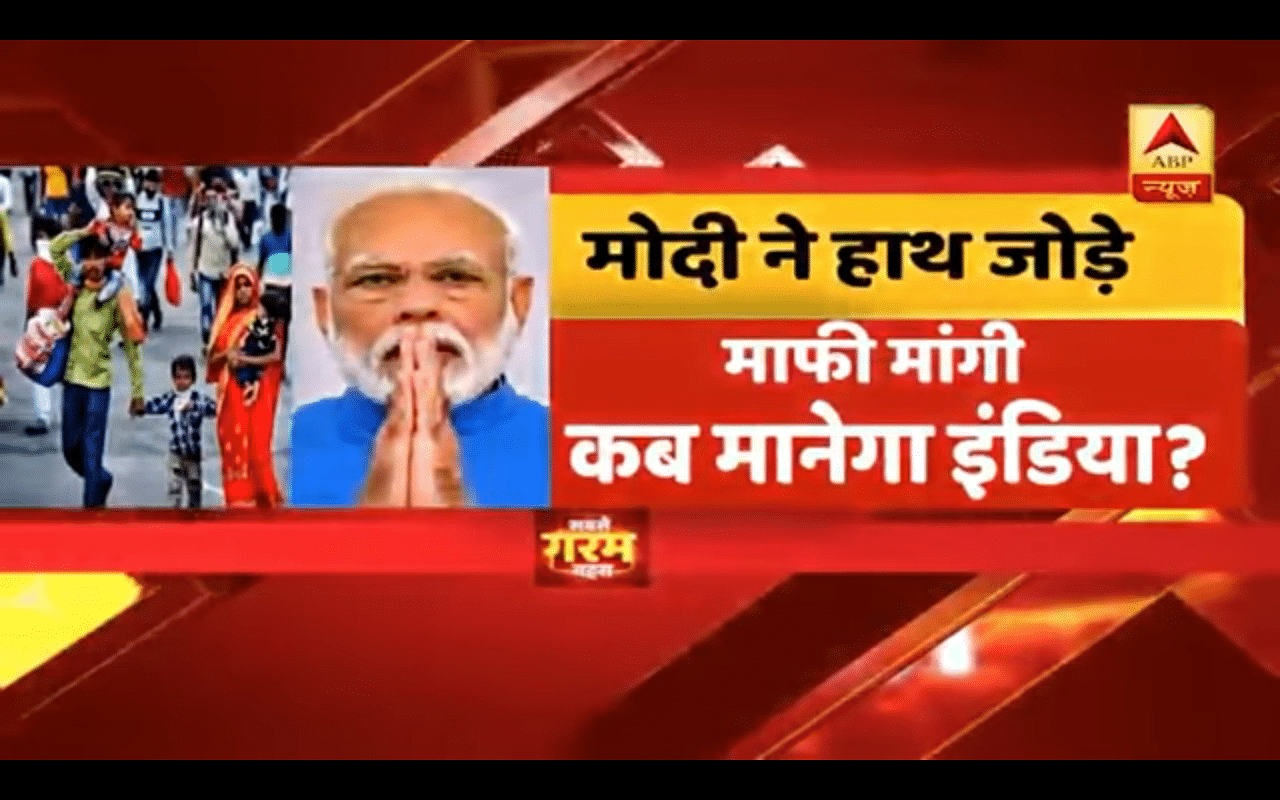
BBC News reiterated that everyone should stay at home, and keep a two-metre distance from others if they needed to step out of the house — but what did that actually look like?
Breaking it down visually, two meters away from anyone could entail the distance of more than a big broom between two people, or about three steps. In the street it could be half parking space, in the park or countryside, it’s about 2 regular benches, in an office it means sitting four desk chairs apart. If one took public transport, they could sit in different rows, if one had food delivered, they could ask for the delivery to be left on the doorstep. The “advisory” finally concluded that if one still wasn’t sure, they could just check and see if they could hit someone with a broom!
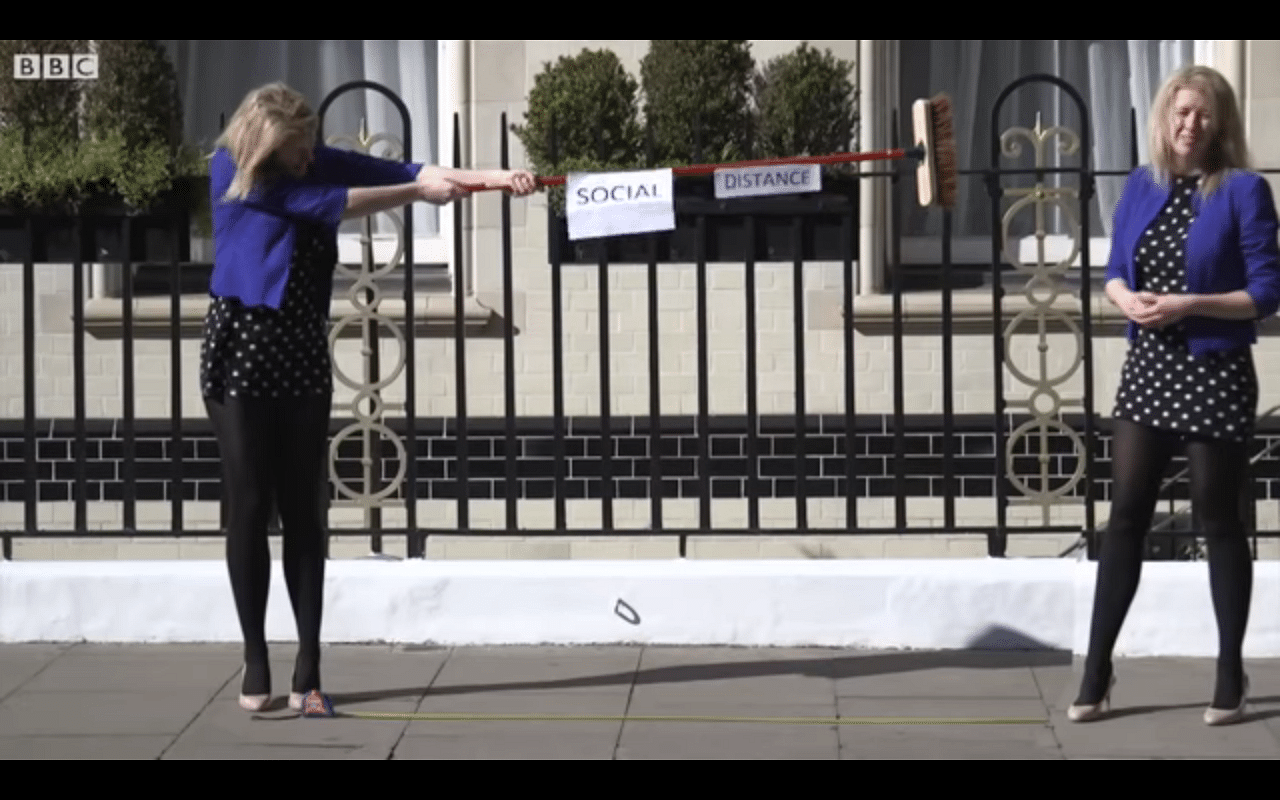
On CNN, the anchor asked Nancy Pelosi, Speaker of the US House of Representatives, what she thought of President Donald Trump thinking of relaxing federal guidelines on coronavirus for some states. She curtly said that it was tragic that the number of Covid-related deaths in the US had shot up from 1,000 to 2,000, and this meant taking every possible precaution. She dismissed Trump by saying that his denial, in the beginning, was “deadly” and his delay in getting medical equipment sorted was also “deadly”. Now, his focus should be to prevent more loss of life rather than open things. “As the President fiddles, people are dying,” she warned with a straight face.


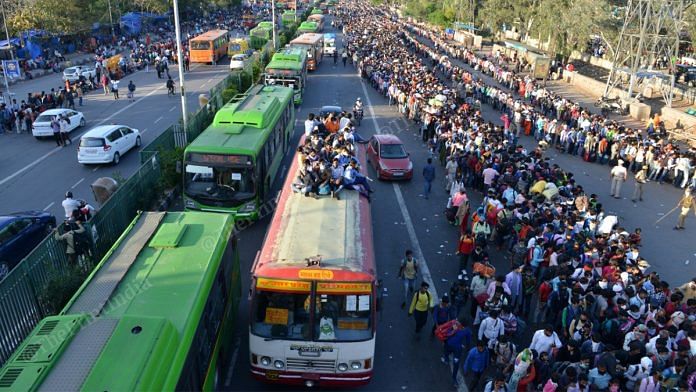

Inhe antakasri ki lg ri ,yahn log dusre sehar mein fas gye h, inki zaban toh chlti rehgi kyunki pet mein khana h ane jane k liye gaadi h,